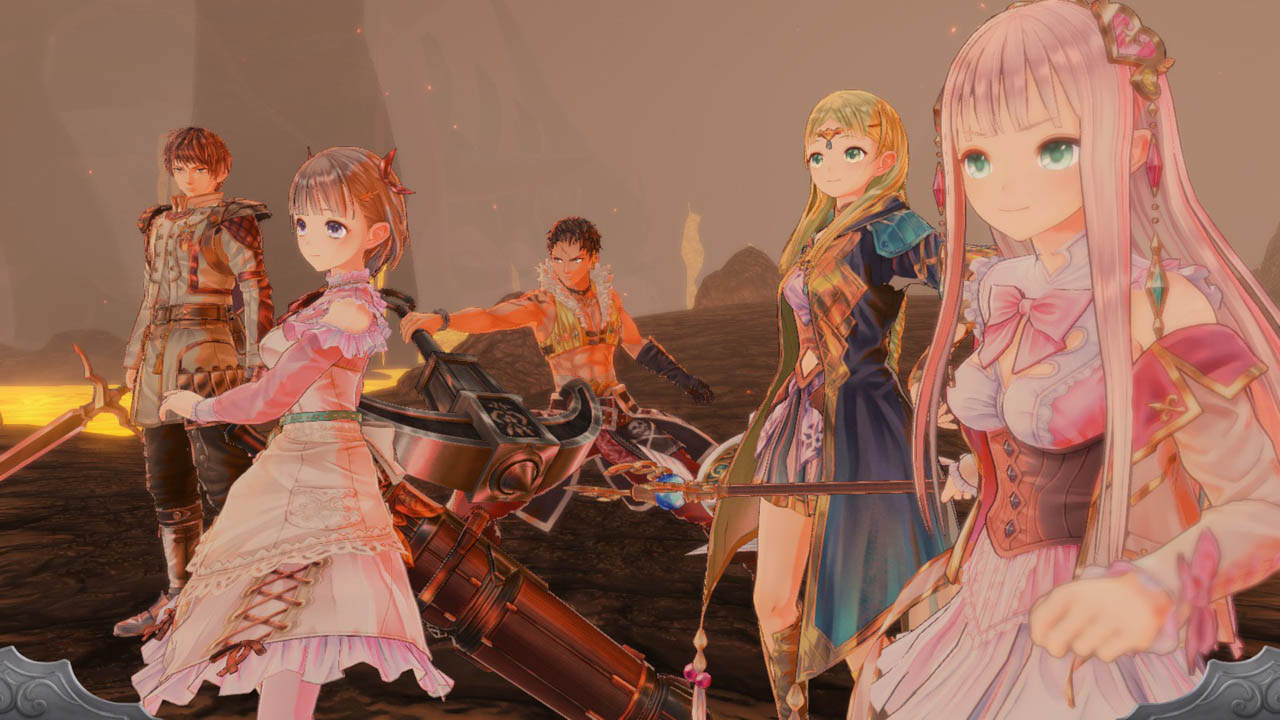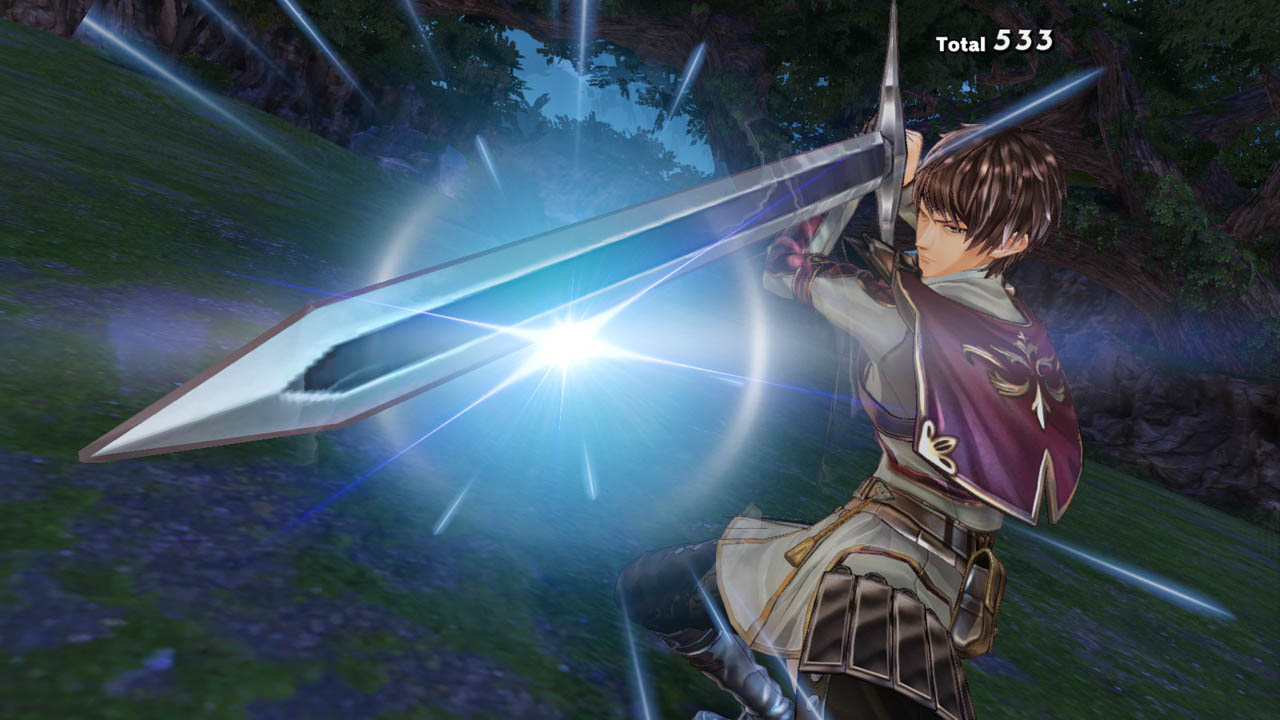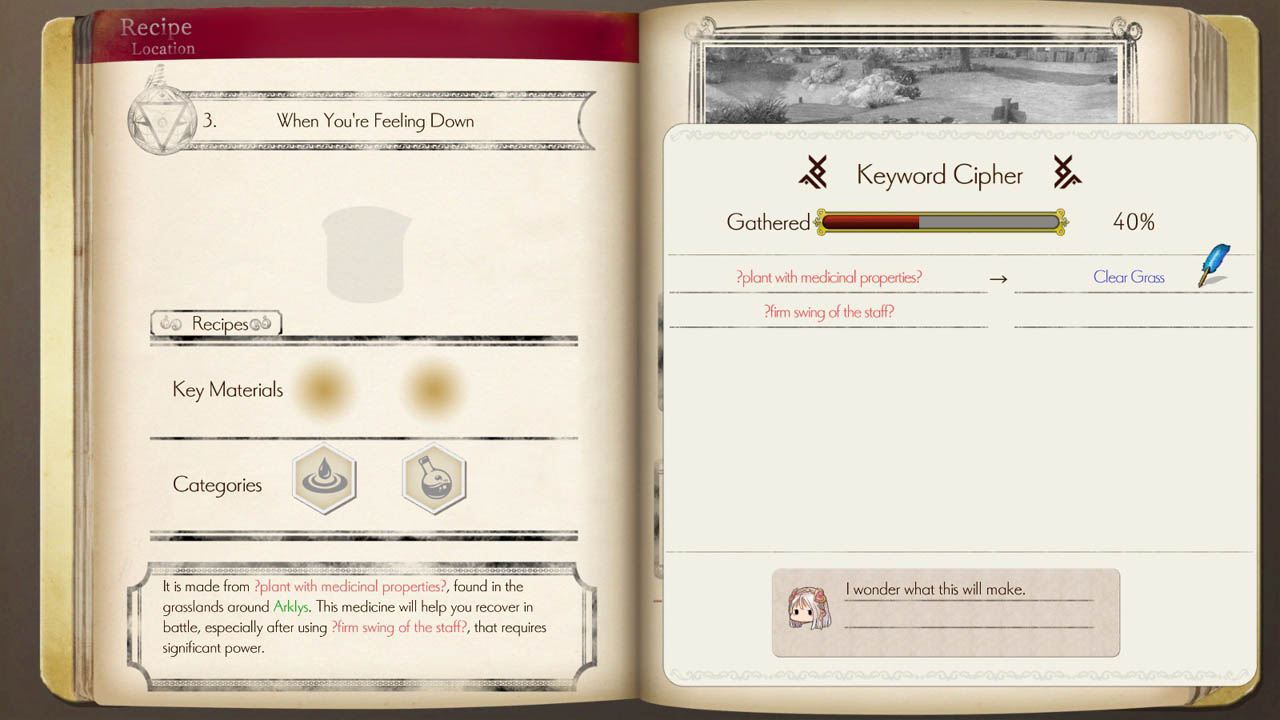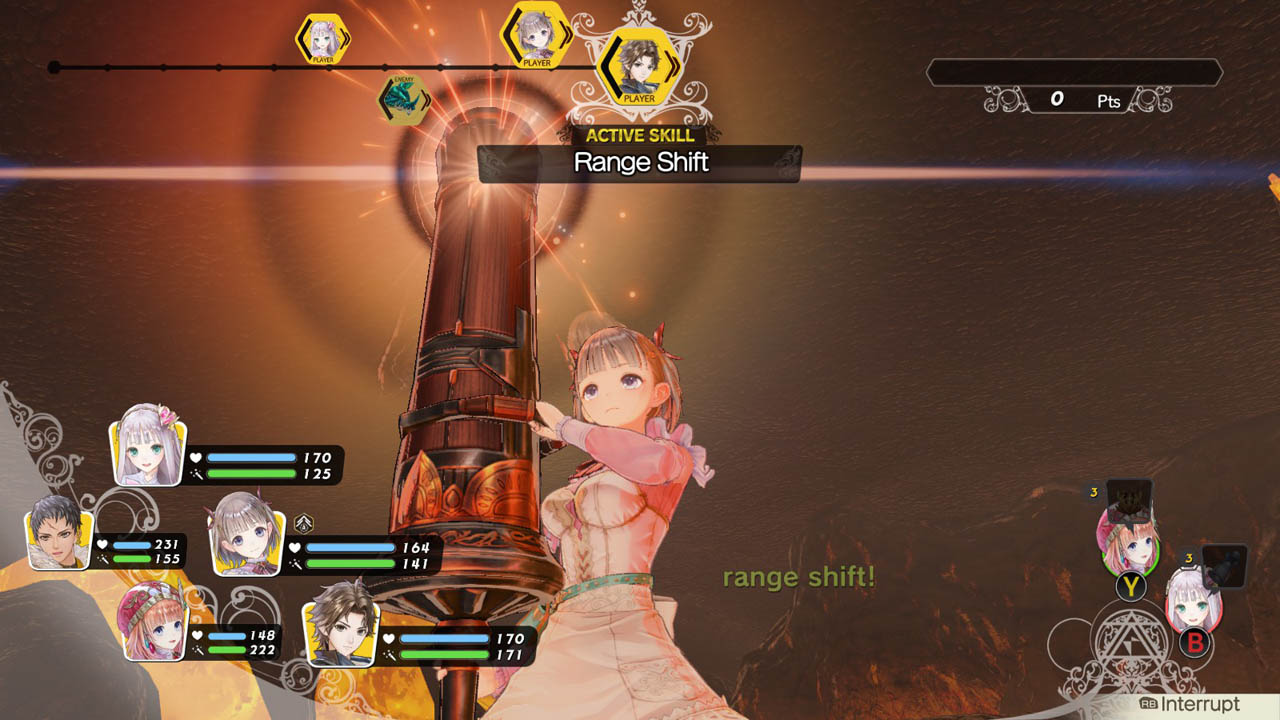Edited by: Jade Swann
Atelier Lulua: The Scion of Arland is the fourth installment in the Arland series, following Meruru, which released almost a decade ago. It follows a budding alchemist in training, Lulua, as she attempts to follow in her mother’s, Rorona, footsteps. But, Rorona isn’t around when you first begin this journey; your teacher, Piana, is.
AMBITION
Often, Atelier series go no further than a trilogy: Arland (until now), Dusk, and the most recent Mysterious. A fourth installment is a bit unexpected, then, but I hope it’s something that becomes a trend — even if just to get that extra opportunity of engaging with characters I’ve come to like through countless hours in previous releases, hearing what antics they’ve been up to, and seeing hilarious nods to events in previous Atelier games (truffles or mushrooms, anyone?). While having played the previous releases in the Arland series helps provide background and context for references, it’s possible to play this otherwise, in which case I’d urge you to read up on the plots of the first three in this series. Best-case scenario, play through some of them to get a feel for the characters and how they were way back, studying and training to become alchemists and adventurers.

This title isn’t all that ambitious, however. It doesn’t attempt to break what’s been tradition as far as exploring or synthesizing go — unlike Firis of the Mysterious series, which provided unique depth in the alchemy progression system by permitting you to unlock various perks in the synthesis of items after you’ve made them so many times (such as an increase in how many of a particular item you produce at once). Despite this, I couldn’t find myself able to stop playing, partly because I wanted to see what all has changed in iconic places such as Arland, Rorona’s hometown, the birth of the Arland series; but, also because of the pacing of the story and certain progression mechanics.
EXPLORATION & PROGRESSION
Initially, it doesn’t seem like the world map is all that big, but it quickly grows. Each area has a percentage of completion, showing which items you’ve gathered and monsters you’ve defeated. Any unknown items or monsters have a question mark as their icon, rendering finding which areas possess new items in your journal easier. Unlike the previous games in the Arland series, there aren’t any time limits in this one. I expected at least deadlines in the optional requests. This affords freedom to explore whenever and wherever, and provides a similarly relaxed experience to those found in releases such as Sophie or Shallie. Some of the gathering areas feel small, but there are ones that are large or have multiple spots to explore.

The Alchemyriddle is the primary way by which you progress the story and as an alchemist. Each chapter features main and secondary pages. The main pages are what help progress the story, and completing secondary pages are quite useful, for they often offer a new recipe or gathering area. Completing these pages are often straightforward — each gives you two hints on what to do. Oftentimes defeating a certain monster or collecting an item is what these tasks require; other times, you might have to synthesize an item with a specific effect or talk to someone. The hint section for one of the secondary pages was rather confusing: while it suggests that it requires you utilize a skill that heals your allies, completing the requirement doesn’t utilize a healing skill. If your first approach to completing a page doesn’t work, you might want to try something else or just consult a guide for some assistance.
SYNTHESIS
You may find yourself wondering just how in-depth the synthesis feature is and how many recipes you’ll uncover. Learning new recipes feels a bit linear. Near the end-game portions of Sophie for instance, there were a staggering amount of recipes I still hadn’t learned, but here it’s a bit difficult to miss learning a recipe from the Alchemyriddle, at least in the first several chapters. But, soon enough, you’re apt to miss a few here and there. Completing a chapter’s entire set of riddles is worth the effort for the chapter rewards and to increase your repertoire of recipes. The option to favorite a recipe you use often is indispensable, for the list gets quite long. Another way to learn new recipes is by buying books from vendors — and it’s worth revisiting certain vendors after you’ve progressed a bit to see if they have new wares that might aid your journey.

Synthesis might feel a bit too straightforward at first, but it can soon transform into a process that requires careful combinations of ingredients to craft a good, practical item because of the elemental attributes of the ingredients and traits you may transfer from them to the final product. Later, you acquire access to boost items which can modify the elemental attributes — and just a simple boost item can mean the difference between a synthesis failing or having an effect or two maxed out. At times, synthesizing can feel convoluted, and the fact that you have to replace used items can be a pain given that items typically only have a few uses. This is where later unlockable features, wholesale, and restocking, save the day. With these, you may have a particular item you’ve made show up at the store within your atelier or pay a nominal fee to have used items restocked in your inventory (only equipped items are restocked). If you’ve made a rather powerful bomb or metal for use in crafting weapons, see about registering the metal to the shop and restocking the bomb. It’s just a far better time with these features than worrying about whether or not you’re currently able to replicate a previous result.
COMBAT
The combat is what you might expect from an Atelier release: turn-based. In Atelier Lulua, you may assign a party member to be an attacker or a supporter. Supporters act on their own and utilize assist skills which certain events (such as taking damage) trigger. You cannot actively utilize your supporters in a battle, but you can have an alchemist cast an interrupt while in the support role. You may also switch out an active party member for one of your supporters, even if the active member has zero health left.

These special interrupt-skills alchemists are permitted to throw an item you’ve equipped them with in their loadout after so many turns. Oddly enough, you can use the item even if the use count reads zero — it’s basically an unlimited supply, limited only by the time it takes to charge the interrupt. Using an alchemist’s interrupt item slot for an offensive item that can cause death makes quick work of enemies, and equipping other alchemists with damaging or healing items makes for a party that can sustain a long, drawn-out fight.
GAME TIME
At sixteen hours, I was only about halfway through the title; I also spent time re-exploring previously unlocked areas to either grind, search for a particular ingredient, or complete the gathering area. I felt I’d just begun to scratch the surface of what this game has to offer. What’s more, there are still countless recipes to learn, bits of the Alchemyriddle to decipher, and places to unlock and explore. So, unless your goal is to speed through the story as fast as possible, you’ll get a few dozens of hours worth of gametime easily — I’ve definitely enjoyed my time with this release, well into thirty plus hours.
The Verdict: Excellent
JRPG enthusiasts might enjoy this title, especially for its humor and characters, but the emphasis on the synthesis system isn’t for everyone. This release is also quite polished: no crashes or really any major issues. Fans of the Atelier series will easily find what they love about the games in Atelier Lulua: The Scion of Arland, and there are dozens of hours to enjoy with this gem.


